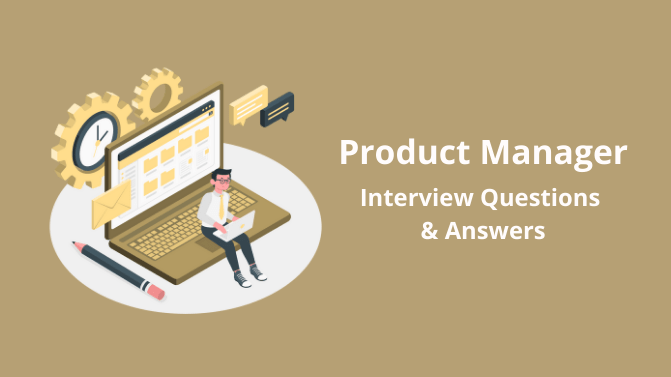Reasons for Leaving a Job – Interview Questions

During an interview, the interviewer will likely ask about your reasons for leaving your current job. It is a layered question that can give a lot of information about you and your motivations to the interviewer. The way you answer it can make or break your chances of nailing the interview. The following article will give pointers to answer this tricky question better.
1. The Common Reasons for leaving current job
2. Why employers want to know your reasons for leaving a job
3. The best way to explain why do you want to leave your job
4. How to explain if you were fired or laid off
5. Explain gaps in resume or periods of unemployment
6. Preparation is the key
1. The Common Reasons for leaving current job
The decision to leave a job is not an easy one. But explaining the reasons for resignation to the interviewer is even more difficult. Sometimes, the reasons for leaving a job are worth explaining, like lack of growth opportunities. But other times, it may not be suitable to be brutally honest, such as leaving the job due to a bad manager. Below are some reasons that you can mention when asked.
Why do you want to leave your job:
- The company restructured.
- There was a company downturn, and you want to quit before layoffs happen.
- There was an acquisition or merger, and you don’t like the new role.
- You weren’t getting enough opportunities to advance your career.
- You want to transition your career to a new industry.
- Your values do not align with the company values.
- The work environment did not suit you.
- You require a more flexible work arrangement because you have personal responsibilities to take care of.
- You need to/wish to relocate to another location.
2. Why employers want to know your reasons for leaving a job
Interviewers are invariably interested to know why do you want to leave your job. Some questions asked in an interview to know your reasons for resignation are:
- Why are you looking for a new job?
- Why did you leave your last position?
- Why did you resign from your previous company?
Through this single question asked in an interview, the interviewer generally wants to know the following information:
- Your work principles and values: Are you a good fit for the organisation?
- Your reason for leaving the job: Are you trustworthy, loyal, responsible and rational?
- If you were let go, what were the reasons behind it: Were you fired or laid off? If you were fired, was it because of an issue with your character or a problem with your performance?
- Your relationship with your current/ex-employer: Did you leave on a positive note and are on good terms with your manager and colleagues?
How to know if it’s time to quit your job
3. The best way to explain why do you want to leave your job
Your reasons for leaving a job can be work-related or personal. You need to answer this tactfully so that you don’t come across as unfit for their organisation.
Below are some points to answer any resignation-related questions asked in an interview:
- Focus on the positive: Focus on the positive aspects of your current position when being asked why you want to leave your job. Do not speak negatively about your former manager or company. Talking critically about the formal employer will make you appear as a toxic person. Instead, mention the skills you learned, your newly created relationships, and the growth opportunities you received.
- Be tactfully honest: Neither give finer details nor be too vague. Tell the interviewer the exact reasons for leaving the current job and how you can be the best person for this new position. State only essential facts and avoid raising any irrelevant information.
- Answer briefly and concisely: Avoid long-winded answers and instead answer to the point mentioning only the reasons why you want to leave your job.
- Focus on the new opportunity: To take charge of the interview, find a way to bring the conversation back to the position you are being interviewed for rather than your previous position. The reasons for leaving a job should reflect how the new work interests you and how it aligns more with your career goals.
- Talk about your skills and strengths: Steer the answer in a direction that talks about your strengths and abilities rather than the difficulties you experienced in your previous/current position.
HackerTrail Insider Tips: Be honest about your reasons. The interviewers can see easily when you are not transparent. The same holds true when answering the question ‘why do you want to leave your job’.
Reasons for leaving a job - Samples answers:
Example 1
“I have been working with my organisation for five years now. I have seen tremendous career growth as I climbed the professional ladder from a software developer to a team lead. I have worked with amazing people and learned a lot during my time here. However, I now want to take up new challenges. This position excites me as I would get a chance to manage larger teams and work on unique projects.“
Example 2
“I have had a great experience with my current employer. However, I have always been interested in working for your company as I truly admire your core values. I wasn’t actively looking for a job as I am happy in my current position, but when I saw this job opening, I couldn’t let go of the opportunity to work with my dream company. I firmly believe in the company values and have the right skills for this position.”
Example 3
I want a work culture that is fast-moving, dynamic and encourages innovation. I sense a lack of innovation in my current job. I admire how your company gives its employees the freedom to innovate and act proactively. That is the biggest reason I applied for this position.
HackerTrail Insider Tips: Give the "real" reasons for leaving the current job. Avoid the standard response- want to switch for better career prospects.
4. How to explain if you were fired or laid off
If you were let go by your employer, then explaining why you left may make you nervous. However, you can justify being laid off or fired by keeping in mind the below things:
- Give a compelling reason for your job termination: If you were laid off, explicitly mention that your position got terminated due to layoffs in your company. If you were fired, your reasons should be compelling enough and not sound dubious to the interviewer.
- Provide assurance: While mass layoffs are something you don’t have control over, being fired could raise doubt in the interviewer's mind. Take responsibility while explaining the reasons for leaving your current job. Give specific examples to demonstrate your honesty, trustworthiness and strength of character.
- State important facts: If you were asked to leave, the employer might wish to verify the information you have provided. Hence, as closely as possible, you should stick to the facts and avoid getting drawn into unprofessional mudslinging or slander.
HackerTrail Insider Tips: Candidates should not blame nor speak negatively about the former employer while citing the reasons for leaving the job.
Sample answer to explain the reasons for leaving a job on being fired:
“My previous organisation hired a new engineering director. She had different expectations from my role, which did not make much use of my strengths. Ultimately, she hired someone better equipped to handle the role.
The situation gave me an enlightening experience that showed me my talent and the areas where I need improvement. Since customer experience happens to be the core of the offered position, I can be a great asset and utilise my skills and capabilities to the maximum.”
Sample answer to explain reasons for leaving current job on being laid off:
“During the last quarter, the company's largest client went out of business. The loss resulted in a significant drop in revenue.
Consequently, the organisation had to eliminate several roles. Unfortunately, I was also a part of that layoff as I was the latest hire. However, in my little stint there, I accomplished a lot at work; I had excellent reviews, and my best referral is my former boss.”
What to do when you get laid off?
5. Explain gaps in resume or periods of unemployment
It is a common misconception among candidates that hiring managers prefer people whose resumes consist of longer tenures of work. But with changing work dynamics, particularly in light of the pandemic where we witnessed a massive economic shutdown, employers don’t just shortlist applicants based on the employment gaps in their resumes. Instead, they focus on the candidate’s skills, problem-solving, and attitude towards learning.
Lastly, emphasise your learnings during the employment gap, such as a short project, freelance gig, a stint as an entrepreneur, etc.
Below is an example answer to a question asked in an interview to explain employment gaps:
“The decision to leave my last job was a well-thought one. I prioritised my family and took a career break to provide full-time caregiving to an ailing family member. Though I wasn’t working a full-time job, the caregiving was very fulfilling and gave me an eye-opening experience. It has made me more empathetic, resilient and a multitasker. Also, during my career break, I stayed updated with the industry's changes and innovations. I have also refreshed my skills before I re-enter the workforce. I now feel confident and enthusiastic about returning to work.”
HackerTrail Insider Tips: When you answer why do you want to leave your job, refine the explanation as much as possible.
6. Preparation is the key
Now that you know how to explain the reasons for leaving a job, it is time to begin the interview preparation by crafting a personalised answer.
By following one of the above approaches, you are sure to make a good impression on the interviewer.
5 things to remember at your interview
Backend Technology Interview Questions
C Programming Language Interview Questions | PHP Interview Questions | .NET Core Interview Questions | NumPy Interview Questions | API Interview Questions | FastAPI Python Web Framework | Java Exception Handling Interview Questions | OOPs Interview Questions and Answers | Java Collections Interview Questions | System Design Interview Questions | Data Structure Concepts | Node.js Interview Questions | Django Interview Questions | React Interview Questions | Microservices Interview Questions | Key Backend Development Skills | Data Science Interview Questions | Python Interview Questions | Java Spring Framework Interview Questions | Spring Boot Interview Questions.
Frontend Technology Interview Questions
HTML Interview Questions | Angular Interview Questions | JavaScript Interview Questions | CSS Interview Questions.
Database Interview Questions
SQL Interview Questions | PostgreSQL Interview Questions | MongoDB Interview Questions | MySQL Interview Questions | DBMS Interview Questions.
Cloud Interview Questions
AWS Lambda Interview Questions | Azure Interview Questions | Cloud Computing Interview Questions | AWS Interview Questions.
Quality Assurance Interview Questions
Moving from Manual Testing to Automated Testing | Selenium Interview Questions | Automation Testing Interview Questions.
DevOps and Cyber Security Interview Questions
DevOps Interview Questions | How to Prevent Cyber Security Attacks | Guide to Ethical Hacking | Network Security Interview Questions.
Design Product Interview Questions
Product Manager Interview Questions | UX Designer Interview Questions.
Interview Preparation Tips
Strength and Weakness Interview Questions | I Accepted a Job Offer But Got Another Interview | Preparation Tips For the Virtual Technical Interview | 7 Tips to Improve Your GitHub Profile to Land a Job | Software Engineer Career Opportunities in Singapore | What can you expect during a whiteboard interview | How To Write A Resignation Letter | Recommendation Letter Templates and Tips.
Quick Links
Practice Skills | Best Tech Recruitment Agency in Singapore, India | Graduate Hiring | HackerTrail Litmus | Scout - Sourcing Top Tech Talent in ONE Minute | About HackerTrail | Careers | Job Openings.





